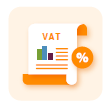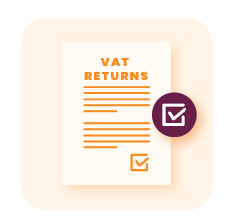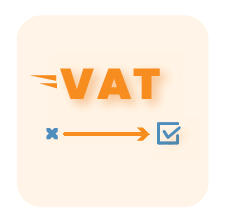Reverse Charge & “Call Off Stock” in Greece
Reverse charge is a tax mechanism where the responsibility for reporting a VAT transaction shifts from the seller to the buyer of goods or services. Instead of the supplier charging and accounting for the VAT, the buyer reports both their purchase (input VAT) and the supplier’s sale (output VAT) in their VAT return.
A “call off stock” arrangement involves goods owned by a non-resident supplier being sent to be stored in the customer’s country, often at the customer’s premises.
Read more about reverse charge and “Call-off stock” in Greece in our comprehensive guide.
Selling in Greece?
Greece – “Call off stock”
A “call off stock” setup entails a non-resident supplier dispatching goods for storage in the customer’s country, frequently on the customer’s property. The customer selects and takes items from this stock as required, and it is at this moment that the legal ownership of the goods is transferred from the overseas supplier to the customer. This procedure of transferring call-off stock mandates registration in Greece. However, suppliers can avoid this registration requirement in Greece by leveraging a simplification scheme intended for such circumstances.
Simplifying the EU’s call-off stock regime
The standardization of call-off stock arrangements across EU member states took effect on January 1, 2020. In Greece, the directives governing these arrangements have been incorporated into various sections of Article 17a of the Greek VAT Code. According to these simplification rules, the physical movement of goods between EU Member States does not constitute a VATable transaction. Instead, VAT implications are triggered by the subsequent transfer of ownership of the goods. This transfer is classified as an intra-community supply of goods from the supplier’s perspective and as an intra-community acquisition from the recipient’s standpoint.
The call-off stock rules will only apply to agreements that meet the following conditions:
- The goods must be transported to another Member State directly by the supplier or through a third party acting on their behalf, aimed at delivering the goods to a designated recipient. This recipient is then to acquire ownership of the goods under a pre-existing agreement between the involved parties.
- The supplier must not have an establishment or a fixed establishment in the Member State to which the goods are dispatched.
- The recipient, who will eventually own the goods, must be registered for VAT purposes in the Member State where the goods are delivered.
- The supplier is required to maintain a ‘call-off stock register’ documenting the goods’ transfer to support the utilization of the call-off stock simplification. Additionally, this transfer must be recorded in the EC Sales List (ESL), clearly identifying the recipient and including the recipient’s VAT ID for the Member State where the goods are delivered.
- The final supply to the designated recipient from the stock must take place within 12 months from the arrival of the goods.
When these criteria are met, the call-off stock regime must be applied mandatorily.
Last Updated: 21/03/2024
Disclaimer
The information provided by Global VAT Compliance B.V. on this webpage is intended for general informational purposes only. Global VAT Compliance B.V. is not responsible for the accuracy of the information on these pages, and cannot be held liable for claims or losses deriving from the use of this information. If you wish to receive VAT related information please contact our experts at support@gvc.tax








